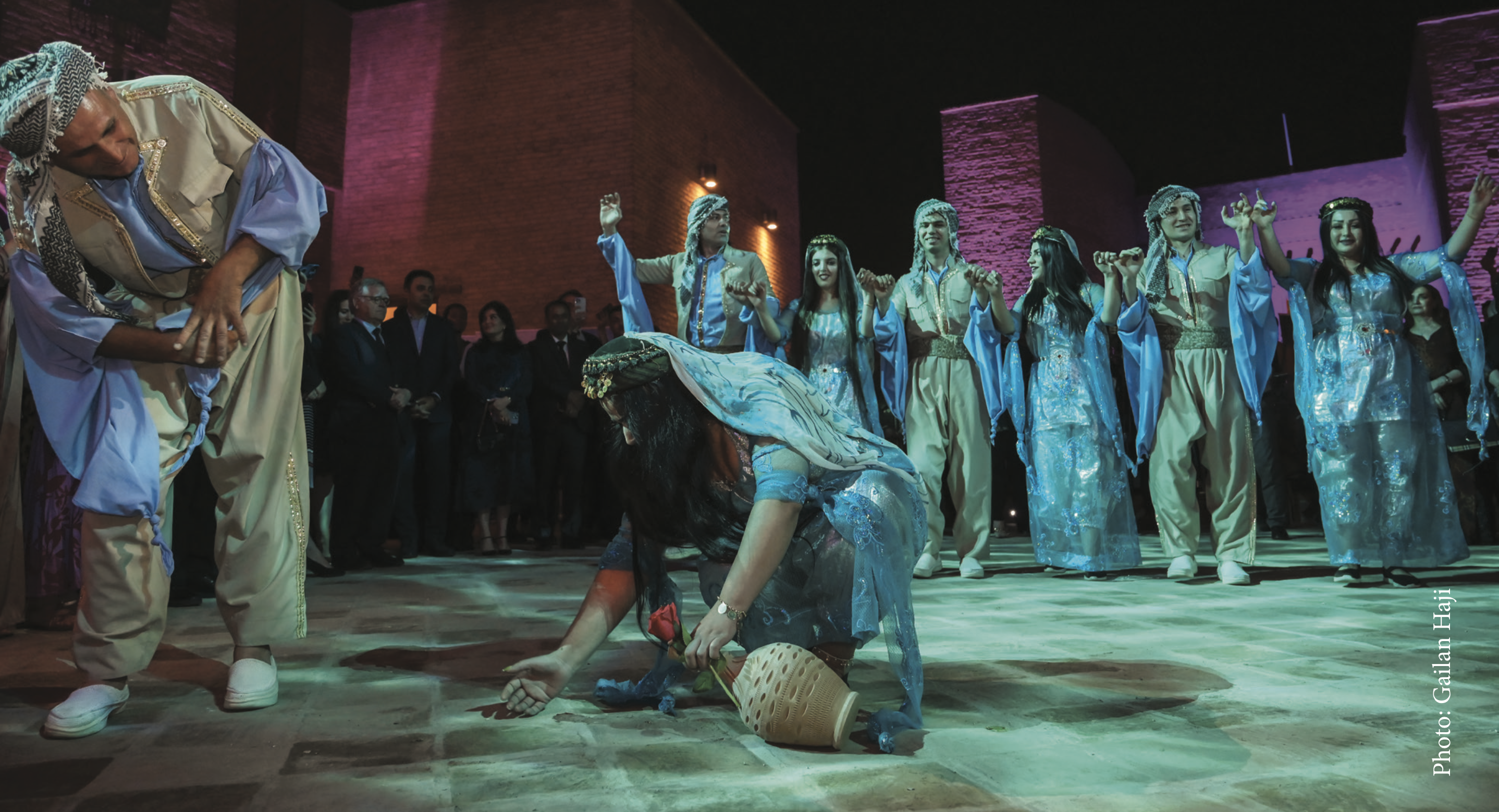Nashville, Tennessee, is home to a vibrant and thriving Kurdish community, affectionately known as Little Kurdistan. This community has a captivating history, with Kurdish immigrants first arriving in Nashville in the late 1970s and early 1980s, seeking refuge from political persecution and war in their homeland.
Over the years, the Kurdish population has grown significantly, making Nashville one of the largest Kurdish settlements in the United States, with an estimated 20,000 residents. As a result, Kurdish culture has become an integral part of Nashville's diverse landscape, with Kurdish restaurants, markets, and cultural centers adding to the city's cultural fabric.
The Kurdish community in Nashville has actively worked to preserve and promote Kurdish culture, language, and history in the United States. They have organized various events, exhibitions, and festivals that celebrate their heritage and raise awareness about the Kurdish cause. Despite the challenges faced by many Kurdish immigrants, the community has thrived in Nashville, enriching the city in numerous ways.

The Kurdish-American Cultural Institute
In 2013, the Kurdish American Cultural Institute (KACI), a nonprofit organization based in Nashville since its establishment in 2000, took the initiative to bridge the gap between Kurdistan and America by proposing the idea of a sister city relationship. A sister city relationship is a long-term alliance between two cities, symbolizing their commitment to cooperation and mutual benefit.
To bring this vision to life, KACI sought support from various stakeholders. They approached the Public Affairs office at the U.S. Consulate General in Erbil, gaining their endorsement. They also met with Erbil's former Governor Nawzad Hadi, who expressed enthusiasm for the idea. Additionally, they engaged with former members of the Nashville Sister City Committee, highlighting the interest and support from the Erbil Governorate and the U.S. Consulate General.
However, several obstacles delayed the project, including financial crises, the rise of ISIS, the conflict between the Kurdistan Regional Government (KRG) and the Iraqi Central Government in 2017, and the Covid-19 pandemic in 2019. Nevertheless, KACI persisted in their efforts, and in 2020, they resumed discussions with the U.S. Consulate General. Former U.S. Consul General Rob Waller held two meetings with the late former Governor of Erbil Dr. Firsat Sofi, demonstrating their commitment to the project. Tragically, Dr. Firsat Sofi contracted Covid-19 and passed away, causing a delay until a new governor was elected.

An exchange of visits
Eventually, with the appointment of Governor Omed Khoshnaw, KACI revisited the sister city proposal. In May 2022, a delegation from Erbil’s local government, led by the Governor of Erbil, visited Nashville. During the four-day trip, the delegation engaged with Nashville city officials and organizations, including the Tennessee Governor’s Chief of Staff, the Mayor of Nashville, the Vice Mayor, the legislative body head, the Nashville Metropolitan Council, the Sister City Committee, the Nashville Area Chamber of Commerce, Tennessee State University, the Downtown Nashville Public Library, a group of lawyers, and the Music City Center.
In August 2022, the Nashville Sister City Committee convened, and a majority voted to continue the Nashville-Erbil Sister City initiative project, recognizing the tremendous success of the May 2022 trip. As a result, a delegation from the Sister City Committee of Nashville embarked on a visit to Erbil in May 2023 to familiarize themselves with the city.

Between May 20 and 25, Mayor John Cooper of Nashville spearheaded a delegation to Erbil. Accompanying him were members of the city council, along with the chairman and representatives from the Sister Cities of Nashville Board. During their visit, they met various people from the KRG, including with Governor Omed Khoshnaw of Erbil. Both sides successfully formalized the sister city agreement between Erbil and Nashville through a signing ceremony.
The Sister City partnership between Nashville and Erbil offers a multitude of benefits for both communities, including increased cultural awareness in both cities, fostering educational collaborations that encompass joint research and teaching programs. The partnership also stimulates business, tourism, and trade, facilitating the exchange of valuable resources and approaches in business, education, culture, and technology. Moreover, it raises the international profile of both cities, showcasing the accomplishments of local governments and attracting more investments to bolster the local economy.
It is worth acknowledging the significant and effective role played by the U.S. Department of State and the U.S. Consulate General in Erbil in ensuring the success of this project.
Azad Sameen is a Kurdish- American who co-founded the Kurdish Youth Festival and the Kurdish Arts Festival in Nashville, Tennessee. He currently serves as the co-founder and regional director of the Kurdish-American Cultural Institute.

